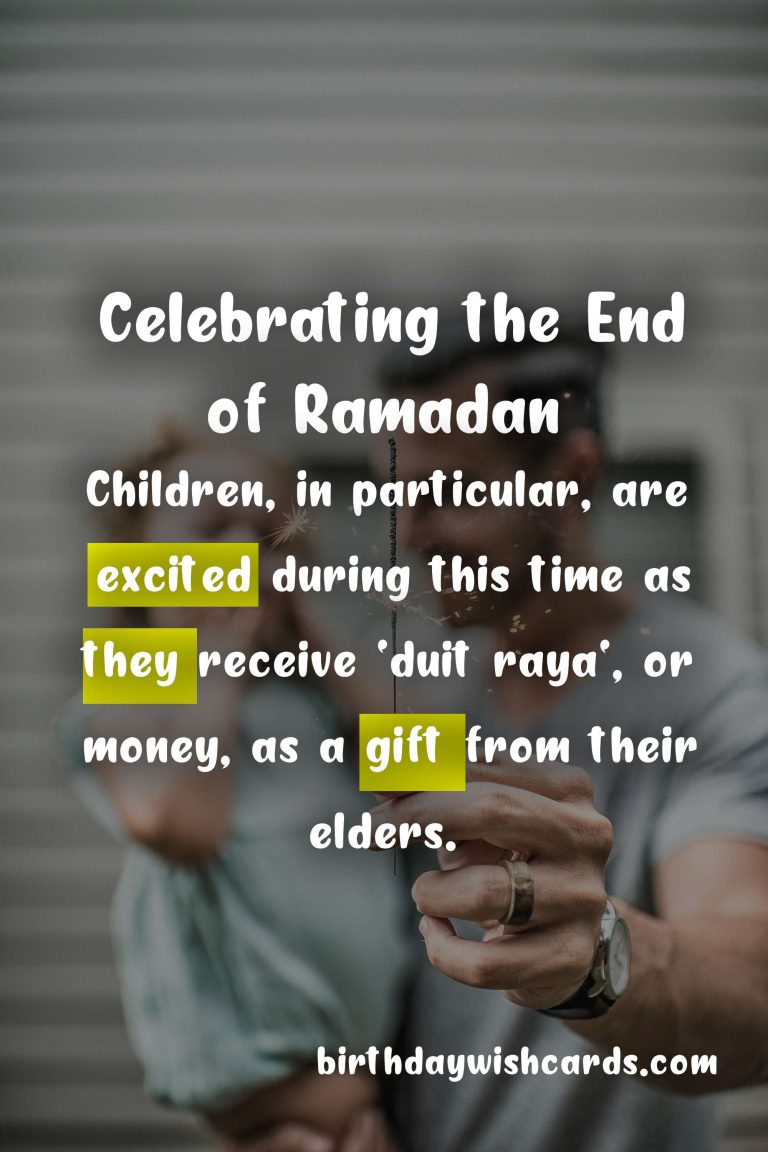The Importance and Significance of Ramadan: A Time of Spiritual Reflection and Renewal
The Arrival of Ramadan
The arrival of Ramadan is highly anticipated each year by Muslims all around the world. It is a special time of the year where Muslims come together to focus on their faith and spirituality.
What is Ramadan?
Ramadan is the ninth month of the Islamic lunar calendar, which is based on the moon’s phases. It is a holy month in which Muslims fast from sunrise to sunset for 29 or 30 days, depending on the sighting of the crescent moon.
The Fasting Obligation
Fasting during Ramadan is one of the Five Pillars of Islam and is an obligatory act for all able-bodied, adult Muslims. It is a time of self-discipline and self-control, where Muslims refrain from eating, drinking, smoking, and engaging in any sexual activity from dawn to dusk.
The Spiritual Aspect of Ramadan
More than just abstaining from physical needs, Ramadan is a time of spiritual reflection and renewal for Muslims. It is believed that during this month, the gates of heaven are opened, and the gates of hell are closed, and the devil is chained up.
Improve Self-Discipline and Empathy
Through fasting, Muslims learn to control their desires and impulses, which ultimately helps them improve their self-discipline and control over their actions and behaviors. Moreover, fasting also helps increase empathy for those less fortunate, as it reminds Muslims of the pain and suffering of those who go hungry every day.
Family and Community Bonding
Ramadan is also a time for family and community bonding. Muslims gather together before sunrise for a pre-fast meal called Suhoor, and after sunset for a post-fast meal called Iftar. This brings families and friends closer and fosters a sense of community.
The Night of Power
One of the most significant nights during Ramadan is Laylatul Qadr, also known as the Night of Power. It is believed to be the night in which the first verses of the Quran were revealed to Prophet Muhammad. Muslims spend this night in prayer and supplication, seeking forgiveness and blessings from Allah.
The End of Ramadan
The end of Ramadan is marked by a three-day celebration called Eid-al-Fitr, where Muslims come together for prayers, food, and festivities. It is a joyous occasion that marks the end of the month-long spiritual journey.
The Significance of Ramadan
Ramadan is more than just about abstaining from physical needs; it is a time of inner reflection, self-improvement, and strengthening one’s relationship with Allah. It is a month of mercy, forgiveness, and spiritual renewal, and it reminds Muslims of the importance of their faith and the need to constantly strive to be better individuals.
In Conclusion
With the arrival of Ramadan comes an opportunity for Muslims to disconnect from the distractions of the world and connect with their faith and spirituality. This holy month is a period of growth and improvement, both physically and spiritually, and it is a time of immense significance in the lives of Muslims all over the world.
Ramadan is a highly anticipated month for Muslims as it is a time for spiritual reflection and renewal.
Fasting during Ramadan is an obligatory act for all able-bodied, adult Muslims.
The spiritual aspect of Ramadan is just as important as the physical obligations.
Through fasting, Muslims learn self-discipline and empathy for those less fortunate.
Ramadan is also a time for family and community bonding.
Laylatul Qadr, the Night of Power, is a significant night during Ramadan.
The end of Ramadan is marked with a three-day celebration called Eid-al-Fitr.
Ramadan is a month of mercy, forgiveness, and spiritual growth.
This holy month is an opportunity to strengthen one’s relationship with Allah and strive for self-improvement.
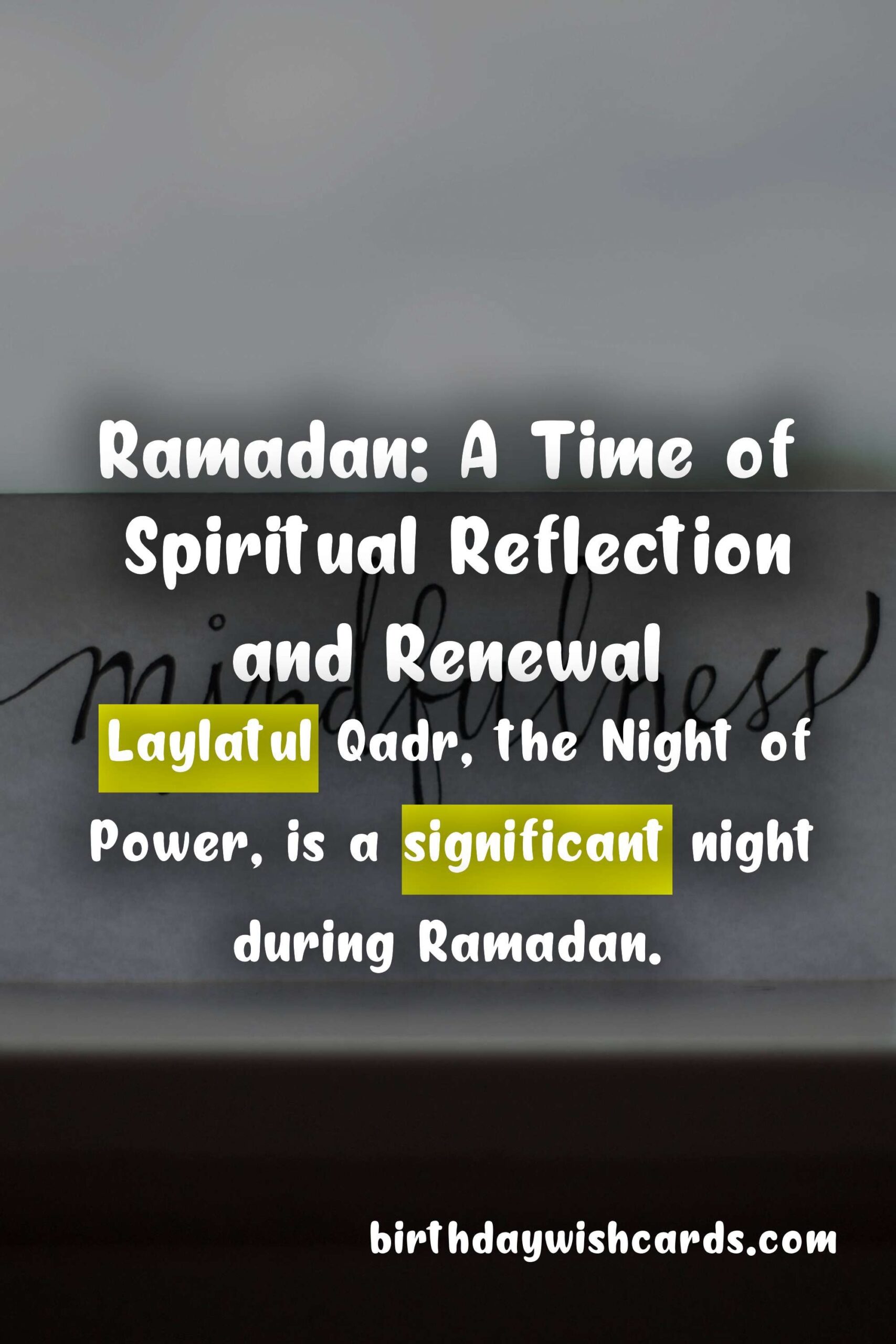
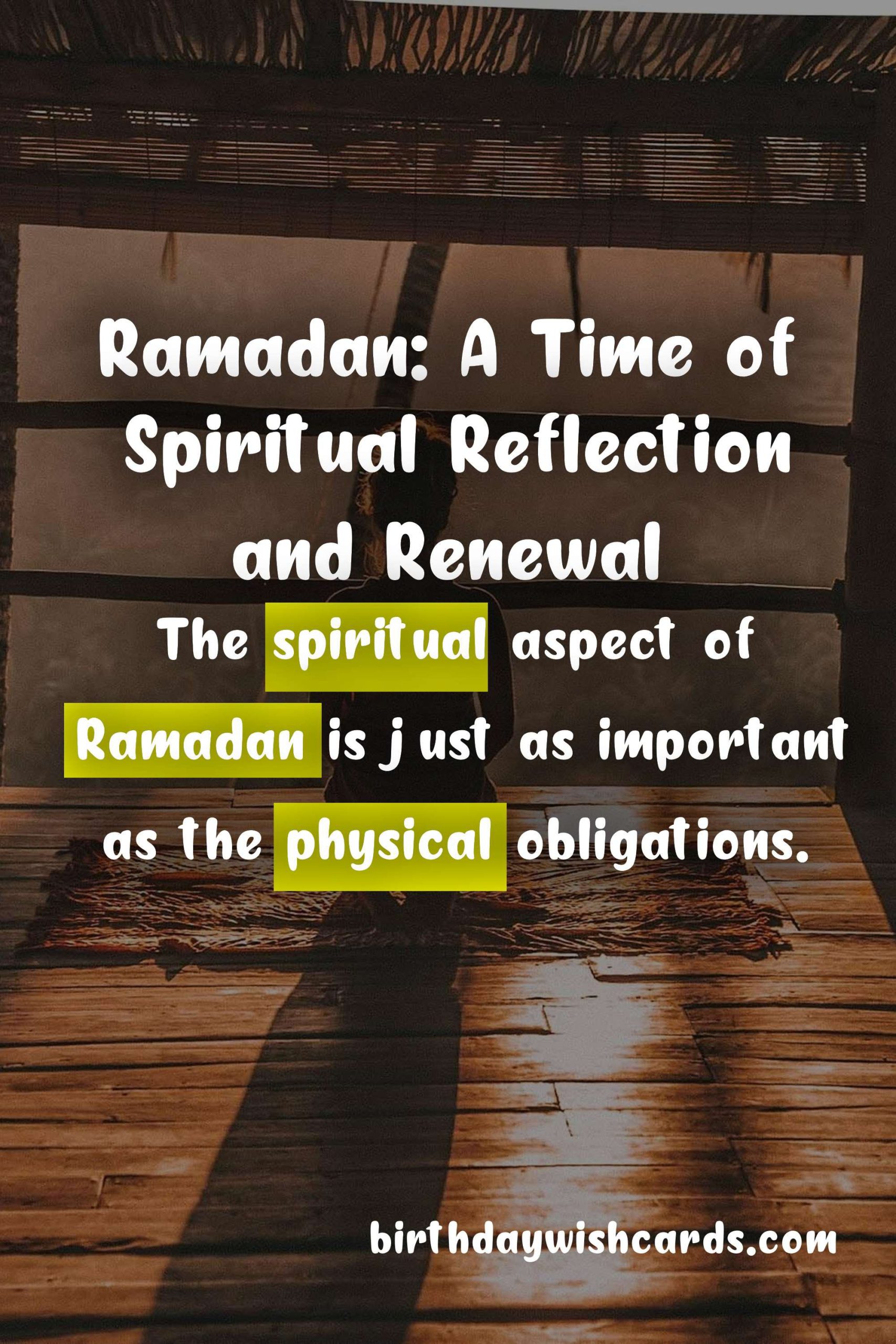



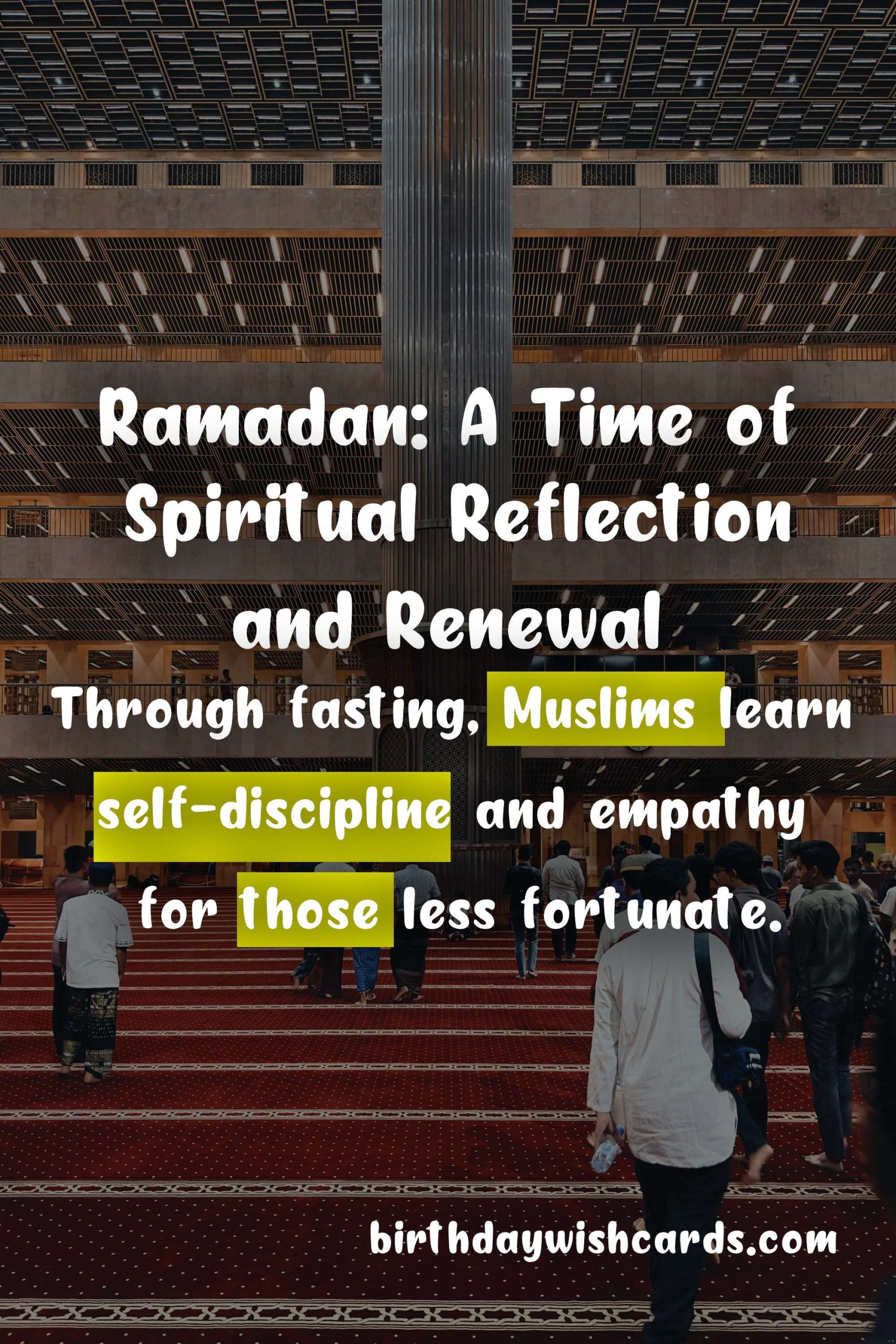

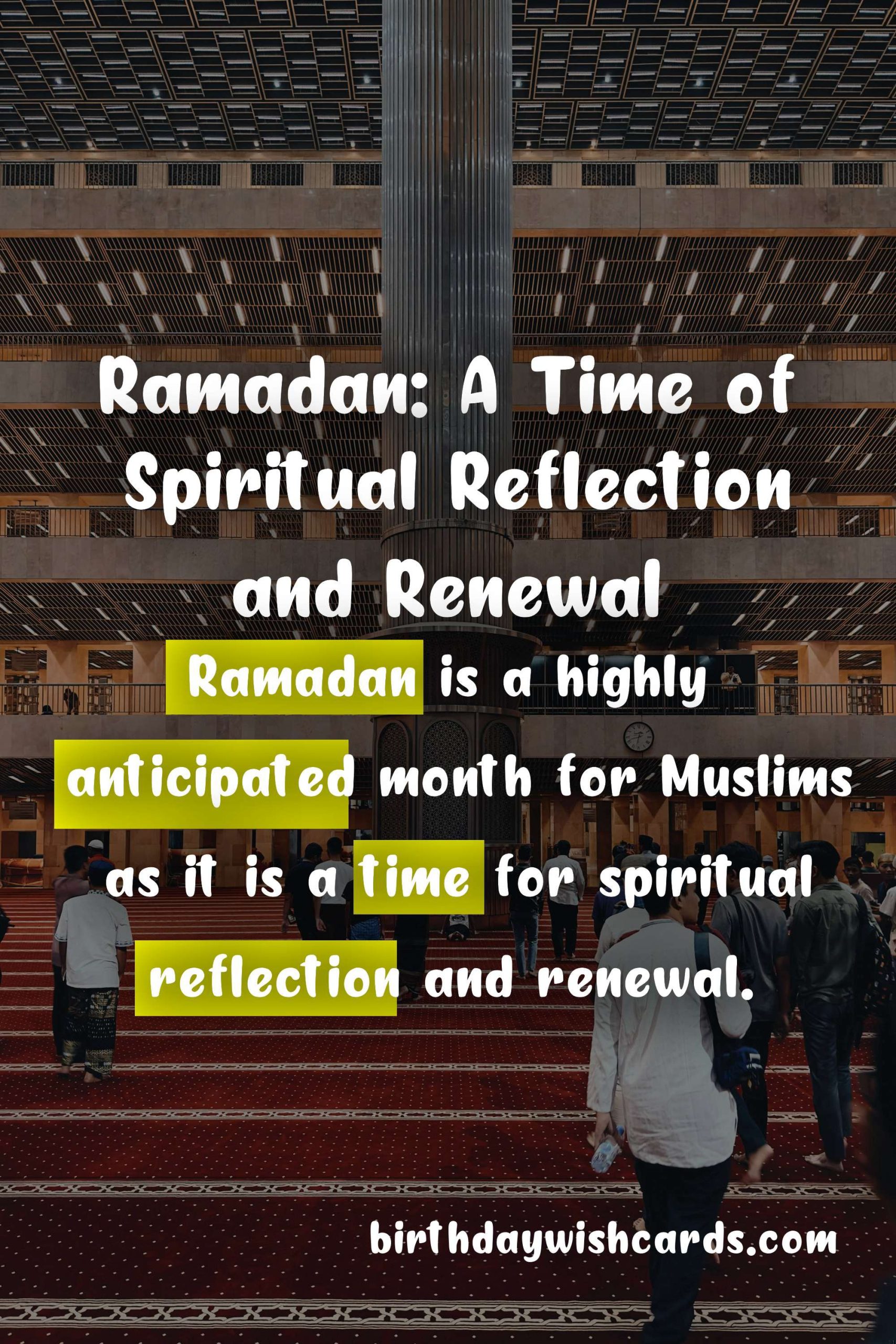

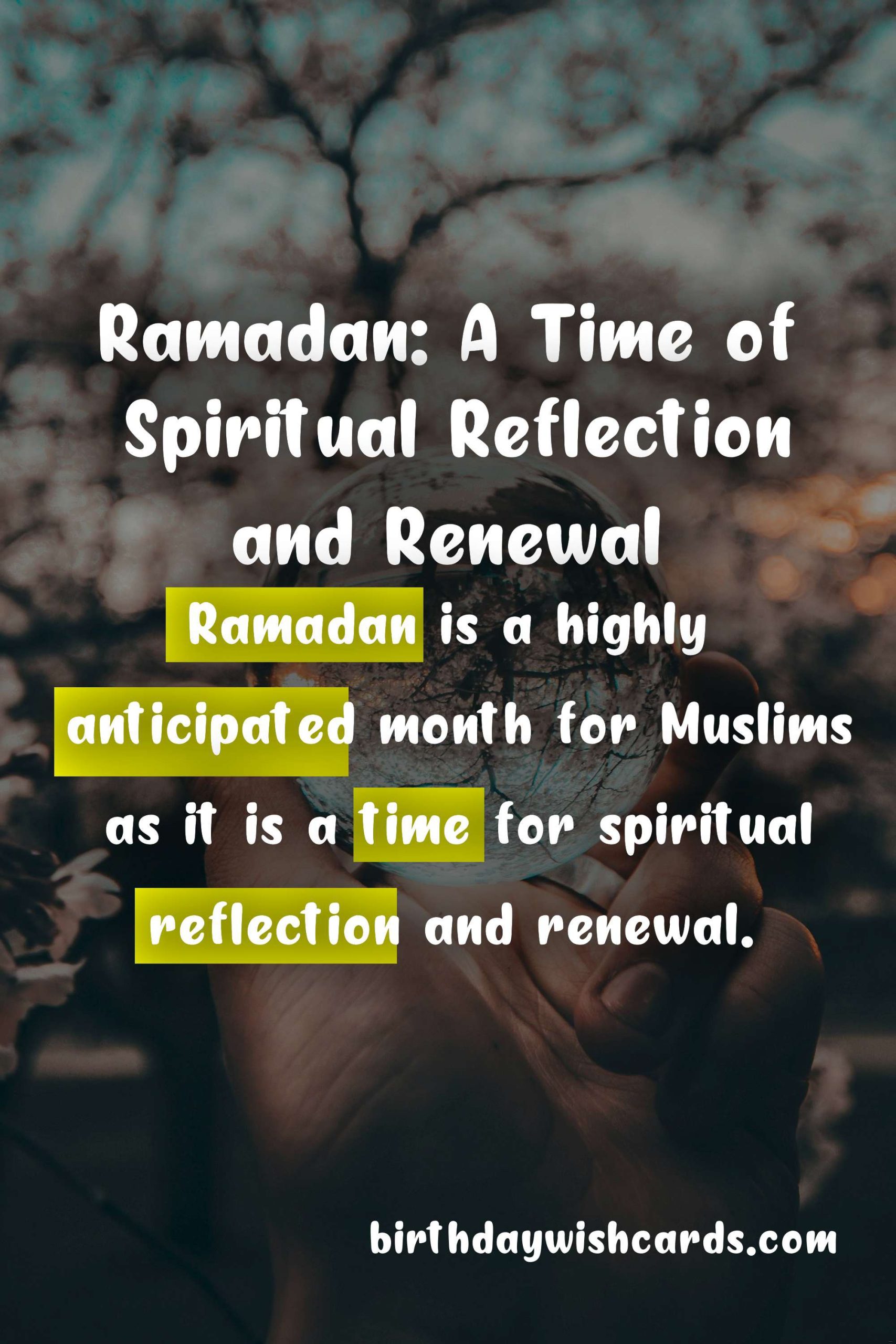
#Ramadan #SelfReflection #Fasting #Spirituality





